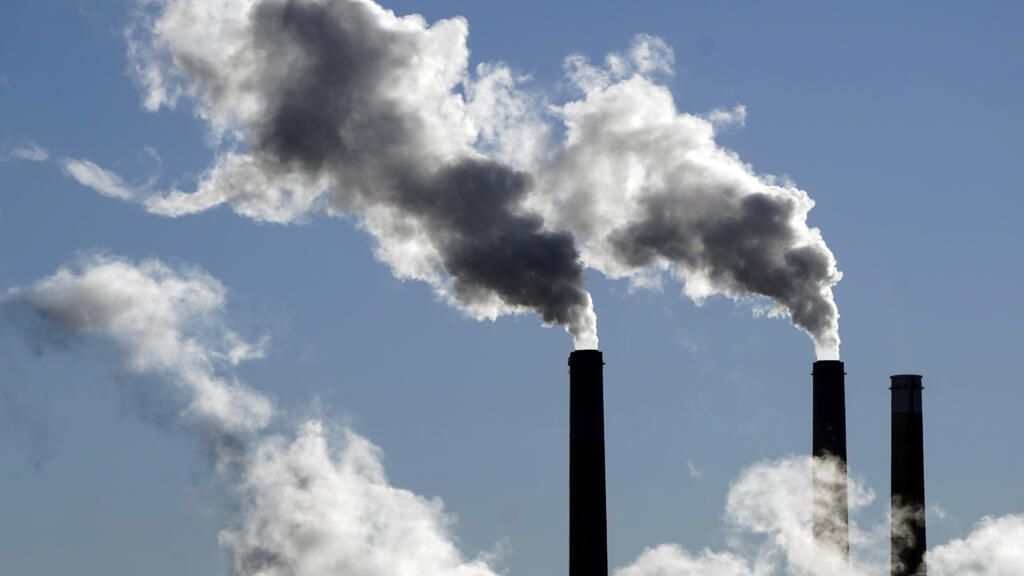
European Union environment ministers have agreed on a diluted 2040 climate target after all-night talks in Brussels, and were due to finalise the deal on Wednesday – days before the UN Cop30 summit opens in Brazil.
The agreement keeps the EU’s headline goal of cutting greenhouse-gas emissions by 90 percent by 2040 compared with 1990 levels, but adds loopholes that allow countries to meet part of the target through foreign carbon credits and postpone some climate policies.
After more than 18 hours of negotiations that stretched past midnight, a majority of the bloc’s 27 member states gave preliminary backing to the compromise.
Ministers were to reconvene on Wednesday to give it formal approval.
“We believe we have the basis for a political deal. We expect to formally conclude a deal when we resume in a few hours,” said a spokesperson for Denmark, which holds the EU’s rotating presidency and chaired the talks.
EU considers ‘brake clause’ in race to agree on 2040 climate goals
Loopholes and offsets
Under the agreement, countries may count international carbon credits towards up to 10 percent of their 2040 target, effectively reducing the domestic cuts required from European industries to 80 percent.
The European Commission had originally proposed a 90 percent cut with only 3 percent of those reductions coming from foreign credits.
France and Portugal supported the higher flexibility, while Spain and the Netherlands opposed it, warning it would weaken Europe’s climate credibility.
Environmental groups said the loopholes undermine the EU’s claim to leadership on climate action by diverting investments away from cleaner industries at home.
TotalEnergies convicted of greenwashing over claims of carbon neutrality
Political divide
Behind only China, the United States and India in emissions, the EU has been the most committed of the major polluters to climate action, already cutting emissions by 37 percent since 1990.
But the bloc’s politics have shifted to the right, and climate priorities now compete with defence and economic pressures.
Countries including Poland, Italy, Hungary and the Czech Republic opposed the original 90 percent plan, warning it would harm industries struggling with high energy costs and competition from cheaper imports.
“We don’t want to destroy the economy. We don’t want to destroy the climate. We want to save both at the same time,” said Polish Deputy Climate Minister Krzysztof Bolesta on Tuesday.
France sought guarantees that its nuclear sector would not lose out under green transition plans, while Spain, Germany and the Nordic nations pushed for stronger targets.
Others, such as the Netherlands and Sweden, cited worsening extreme weather and the need to catch up with China in manufacturing green technologies as reasons for ambitious goals.
Record surge in CO2 puts world on track for more long-term warming
Delayed carbon market
To win over sceptical countries, ministers agreed to delay the launch of the EU’s new carbon market for transport and heating fuels by one year, to 2028.
Poland and the Czech Republic had demanded the change, saying the measure could raise fuel prices.
The agreement also calls for extending free pollution permits for heavy industry and keeping low-carbon fuels in road transport, a nod to concerns about the planned 2035 combustion engine phaseout. The 2040 target will also be reassessed every two years.
Spanish Environment Minister Sara Aagesen said Europe’s credibility was on the line.
“We have a lot at stake. We are risking our international leadership, which is fundamental in this extraordinarily complicated context,” she said to reporters on Tuesday.
Ministers also reached agreement on a 2035 emissions target, known as a Nationally Determined Contribution, which Paris Agreement signatories are expected to present at Cop30.
The target was set at between 66.25 and 72.5 percent.
EU officials said the compromise ensures the bloc will not arrive in Brazil empty-handed, even if the result is less ambitious than many had hoped.
They insist Europe remains committed to reaching net zero by 2050 while balancing environmental and economic concerns.
The EU said it mobilised 31.7 billion euros in public climate finance in 2024, making it the world’s largest donor.
(with newswires)







